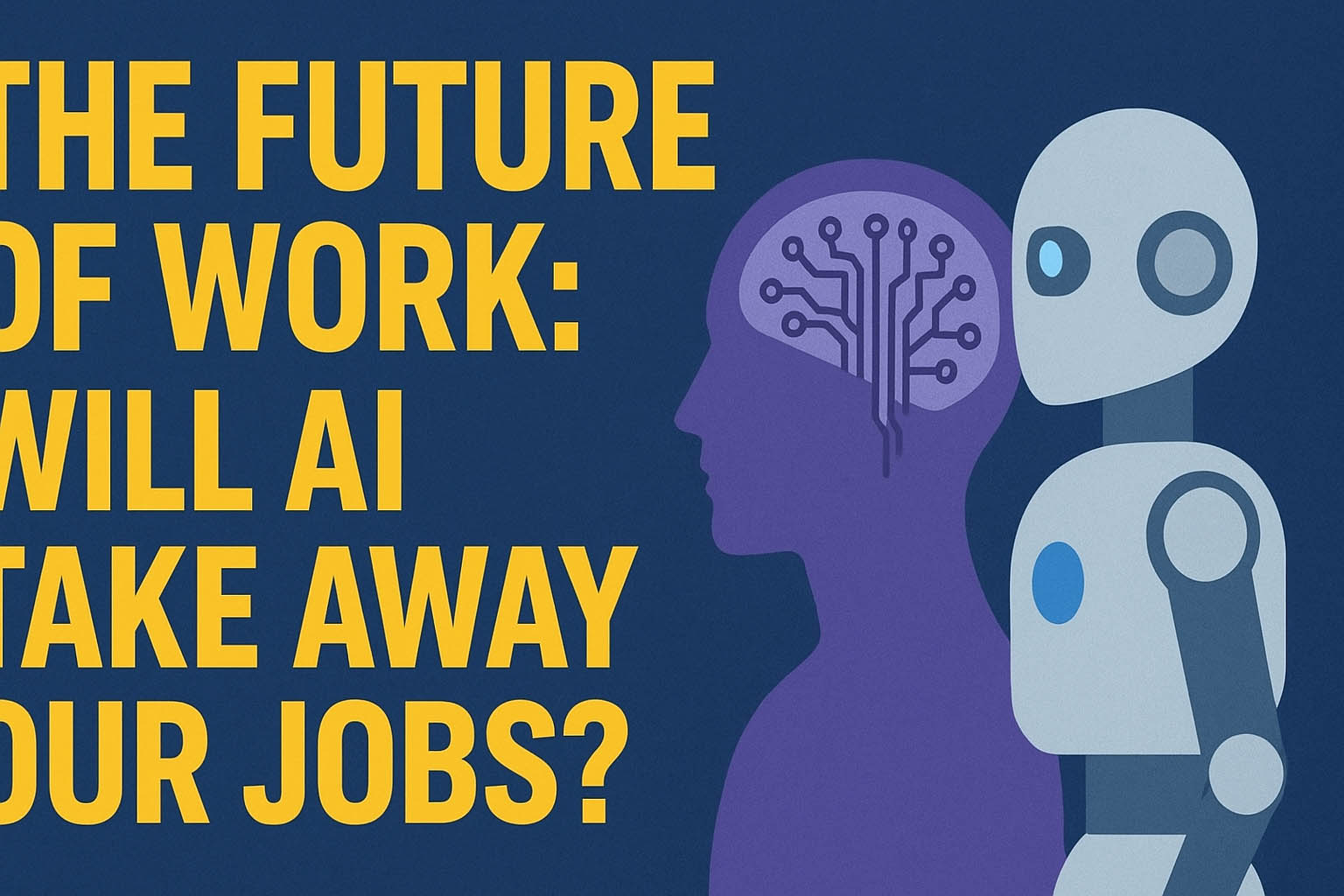Artificial Intelligence (AI) is no longer a futuristic concept—it is here, transforming industries, economies, and everyday life. From self-driving cars to advanced chatbots, AI is rapidly shaping how businesses operate and how people work. This raises a crucial question: Will AI take away our jobs, or will it create new opportunities that reshape the future of work?
The Fear of Job Loss
One of the biggest concerns surrounding AI is automation. Machines are increasingly capable of performing tasks that were once reserved for humans. For instance, AI-powered systems can process data faster than any human, diagnose certain medical conditions more accurately, and even write code. In industries like manufacturing, logistics, and customer support, automation has already replaced thousands of jobs.
A study by the World Economic Forum predicted that while AI may displace millions of jobs, it will also create millions of new roles. However, the jobs lost may not always match the skills of those displaced, leading to a period of economic and social disruption.
Jobs Most at Risk
Not all jobs are equally vulnerable. Tasks that are repetitive, routine, and predictable are most at risk of being automated. Examples include:
- Data entry clerks
- Assembly line workers
- Telemarketers
- Cashiers
These roles involve functions that AI can handle faster, more efficiently, and often at a lower cost.
Jobs That Will Thrive
On the other hand, jobs that require creativity, emotional intelligence, and human interaction are less likely to be replaced by AI. Roles in teaching, healthcare, creative industries, and leadership positions will continue to rely heavily on human qualities like empathy, innovation, and decision-making.
Additionally, AI itself will create demand for new types of jobs. For instance:
- AI engineers and programmers
- Data scientists
- Ethics specialists in technology
- Cybersecurity experts
- Human-AI collaboration managers
These emerging roles highlight that while some jobs disappear, others evolve and new ones emerge.
The Importance of Adaptation
The future of work will depend on how adaptable societies and individuals are. Learning new skills, reskilling, and lifelong education will become essential. Workers who embrace technology rather than resist it will have a stronger chance of staying relevant in the job market.
For example, a factory worker whose job has been automated could transition into managing or maintaining robots, provided they undergo the right training. Similarly, journalists are now using AI tools to analyze data, but their role in storytelling and critical thinking remains irreplaceable.
Human and AI Collaboration
Instead of thinking of AI as a competitor, it is more productive to see it as a collaborator. AI excels in data processing, pattern recognition, and efficiency, while humans bring creativity, empathy, and ethical judgment. The most successful workplaces of the future will be those where humans and AI work together, complementing each other’s strengths.
Imagine doctors using AI to quickly analyze scans, enabling faster diagnoses, while they spend more time with patients providing care and emotional support. Or consider educators using AI tools to personalize learning experiences, allowing them to focus on mentoring and motivating students.
The Ethical Challenge
While AI offers tremendous potential, it also poses ethical and societal challenges. Who decides which jobs should be automated? How do we ensure workers displaced by AI find meaningful employment? How do we prevent wealth gaps from widening between those who own AI technologies and those who do not?
Governments, businesses, and educational institutions must collaborate to ensure a fair transition. Policies such as reskilling programs, safety nets for displaced workers, and ethical regulations on AI deployment will be critical.
Conclusion: A Balanced Future
The future of work with AI is not a simple story of job loss—it is a story of transformation. Yes, certain roles will disappear, but new opportunities will arise. The key lies in adaptability, reskilling, and human-AI collaboration.
Rather than fearing AI, we should focus on harnessing its potential to create a more innovative, efficient, and human-centered workplace. The question is not whether AI will take away jobs, but whether we are ready to evolve alongside it.



